Story highlights
- Clinton senses a potential vulnerability in Sanders' approach to foreign policy
- Sanders' main argument for his steady stewardship on national security matters is that he has better judgment
(CNN)Even Bernie Sanders admits that he's not done enough to explain his foreign policy positions.
His presidential bid is anchored in a sweeping critique of what he sees as the corrupting influence of large corporations and politics, so the chaotic churn of global events and geopolitical strategizing is hardly a central focus of his campaign.
But Hillary Clinton -- surprised by the strong challenge from Sanders that is likely to hand him next week's New Hampshire primary -- senses a potential vulnerability and is trying to build a case that it disqualifies him from being president.
Her criticism is aided by the fact that Sanders has not made a consistent effort during his campaign to lay out what his foreign policy prescriptions actually are.
At Thursday night's Democratic debate in New Hampshire, he indicated he would adopt a less proactive position on military action abroad than Clinton. He would also put more pressure on other nations to address top threats to U.S. security -- for instance, calling on U.S. Arab allies to invest more in the fight against ISIS or China to do more to rein in North Korea following its latest nuclear test.
But aside from a few broad strokes such as these, his main argument for his steady stewardship on national security matters -- lacking as he does the former secretary of state's immersion on the international stage -- is that he has better judgment. In particularly, he refers to the prudence that he says led him to vote against the Iraq War -- while Clinton authorized it.
Sanders acknowledged that he could have managed his vulnerabilities on foreign policy better, saying he had erred in burying his most extended discussion of national security to date in a speech last year at Georgetown University that was billed as an explanation of his embrace of democratic socialism.
"Maybe I shouldn't have combined the two in the same speech, because the foreign policy part of it didn't get much attention," Sanders said Thursday.
Sanders: U.S. can't go it alone
In the speech, Sanders warned that the U.S. cannot go it alone in fighting ISIS and castigated many regional states for doing "nothing or very little" to deal with the Syrian refugee crisis.
"Wealthy and powerful Muslim nations in the region can no longer sit on the sidelines and expect the United States to do their work for them," Sanders said, also calling for the U.S. to put aside differences with Iran and Russia to combat ISIS.
"We cannot be the policeman of the world," Sanders said.
The Sanders campaign did not respond to questions on Friday about how the Vermont senator would handle the Clinton assault on foreign policy and whether he would talk more about the issue of America's place in the world in the coming days.
Sanders' calls for regional nations to do more to battle ISIS are not new and have been shared by the Obama administration. But Sanders, and other presidential candidates, don't say much on how they will sway regional powers driven by their own national interests and reluctant to throw their troops into the bloody Syria quagmire.
Sanders has also offered few specifics about policy towards the rest of the world. In Asia, he has largely focused on opposing the Trans-Pacific Partnership trade pact -- apparently motivated more by concern for American workers than strategic considerations.
However, he has pushed back against the idea that, after opposing the Vietnam War as a young man, he is a left-wing peacenik who would bow to America's enemies.
"I am not a pacifist: I supported the war in Afghanistan, I supported President Clinton's effort to deal with ethnic cleansing in Kosovo, I support air strikes in Syria," Sanders said at a Democratic presidential debate on CNN in October.
"I happen to believe from the bottom of my heart that war should be the last resort," he said. "But yes, I am prepared to take this country into war."
Clinton camp celebrates, but do voters care?
Sources in the Clinton campaign believe that the debate represented the first time in the race so far that Sanders was forced to address a long series of foreign policy questions that, in their view, exposed him as wanting.
The Clinton campaign was quick to pounce on Sanders' remark Thursday night that North Korea was run by "a handful of dictators" to argue that he did not understand the tyrannical power structure led by the ruthless young leader in Pyongyang, Kim Jong Un.
During the debate, Clinton's Twitter account also blasted Sanders on his ability to protect the country, including the line: "There is only one person who is ready to be commander in chief on stage at the #DemDebate."
Clinton's campaign manager Robby Mook drove home the attack on Sanders on CNN after the debate.
"I think you saw Sen. Sanders fail that national security test," Mook said.
It's not clear yet that Democratic primary voters actually care that much about foreign policy, however. In a CNN national poll last month, terrorism and foreign policy ranked fourth and eighth in a list of issues Democratic candidates are most concerned about. The top two concerns were the income gap and health care, which Sanders has built his campaign around.
Just 25% of Democrats said that foreign policy was extremely important in shaping their vote this year, compared to 32% of Republicans. But at the same time, 69% of Democrats said Clinton could best handle foreign policy, compared to 26% for Sanders, suggesting that she is right to sense an opening on the issue.
Iraq vote haunts Clinton
Still, it is not a given that Clinton's attacks will succeed. She tried a similar line of argument against Obama in the 2008 primary campaign, suggesting with her infamous "3 a.m. phone call" ad that only she had the experience to be president.
Voters back then chose to side with Obama's judgment owing to his famous repudiation of the Iraq war before he reached the Senate -- again, compared to Clinton's vote to authorize it.
And that is one significant national security card that Sanders holds -- and has been playing.
"I fully, fully concede that Secretary Clinton, who was secretary of state for four years, has more experience -- that is not arguable -- in foreign affairs," Sanders said at the debate. "But experience is not the only point; judgment is."
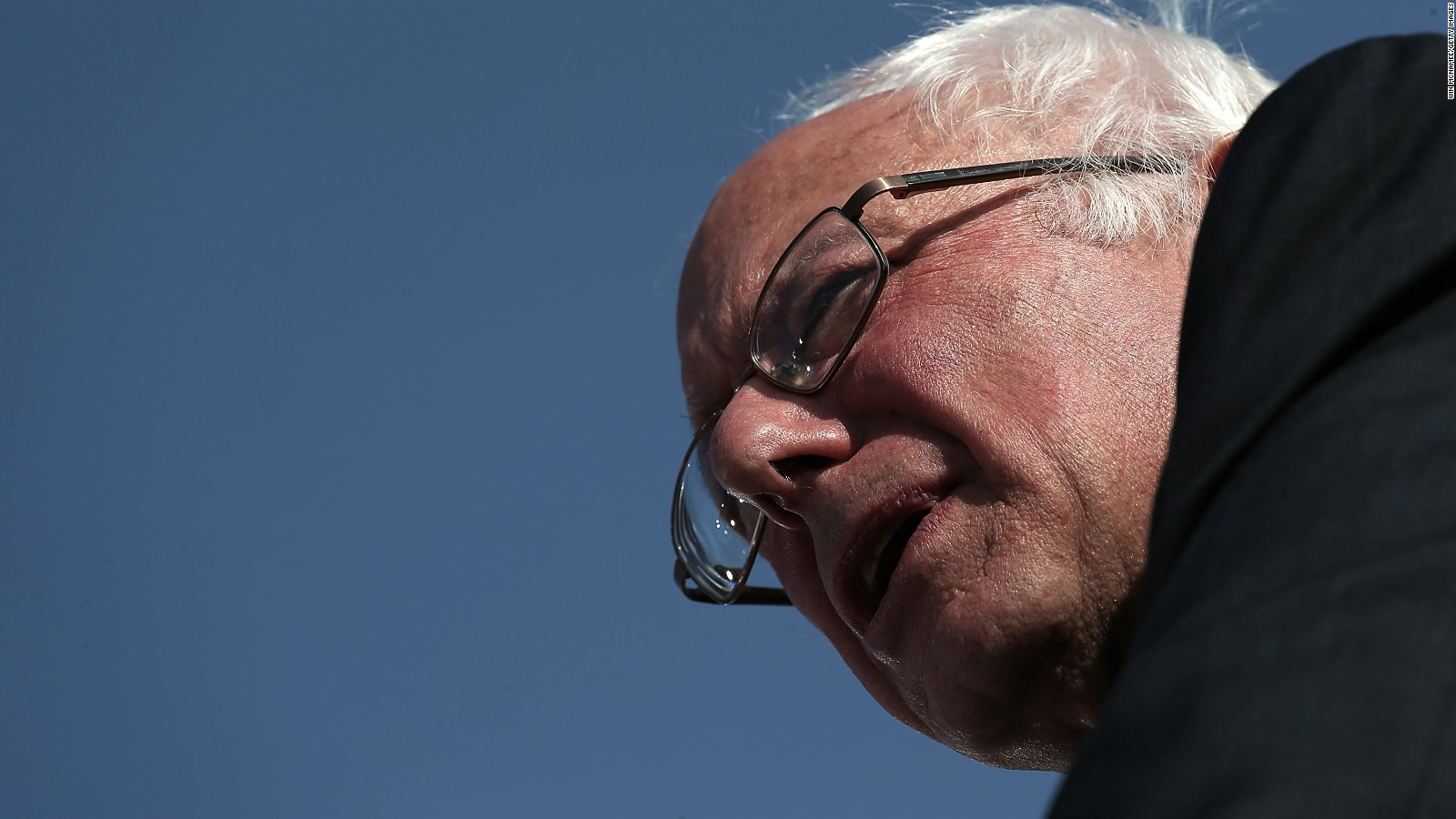
13 photos: Bernie Sanders' political career
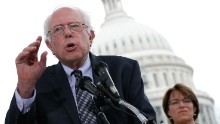
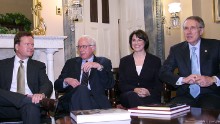
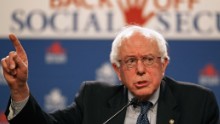
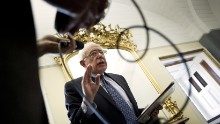

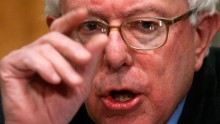
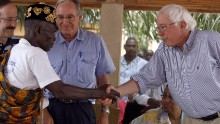
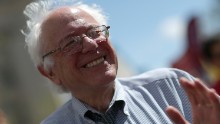
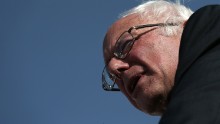
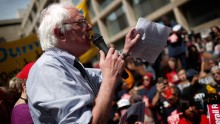

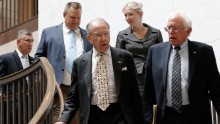
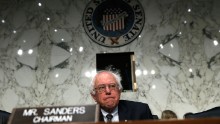














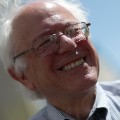
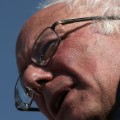

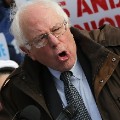
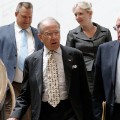
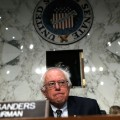
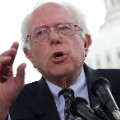
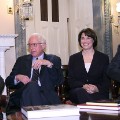

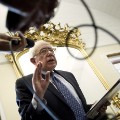



He continued, "Once again, back in 2002, when we both looked at the same evidence about the wisdom of the war in Iraq, one of us voted the right way and one of us didn't."
In a floor speech before casting a vote against President George W. Bush's war plans, Sanders made a prescient argument about the long-term impact of a decision to topple Saddam Hussein.
"Who will govern Iraq when Saddam Hussein is removed and what role will the U.S. play in (an) ensuing ... civil war?" Sanders asked. "Will moderate governments in the region who have large Islamic fundamentalist populations be overthrown and replaced by extremists?"
Clinton is showing frustration that a vote she cast almost a generation ago is still being used as a weapon against her, and the former New York senator sharply warned Sanders on Thursday night it had little to do with today's challenges.
"A vote in 2002 is not a plan to defeat ISIS. We have to look at the threats that we face right now," Clinton said, trying out a new answer on her vote on Iraq.
Too hawkish for Democrats?
Thirteen years after the Iraq war began, Clinton continues to battle present-day perceptions that she's too hawkish for the liberal base of Democratic primary voters on foreign policy.
After all, she lobbied President Barack Obama hard on military action in Libya in 2011 and wanted him to do more to back anti-regime rebels in Syria as secretary of state -- and now pushes for a no-fly zone there, a much more aggressive military posture than Sanders and even several Republican candidates.
But if she reaches the general election, her hawkishness might become an asset given the public's revived fears about terrorism following attacks in Paris and San Bernardino, California, and Americans' ebbing confidence in Obama's handling of it.
And conversely, the former secretary of state is also making an implied case that the more dovish Sanders would be a liability in a general election.
"You are voting both for a president and a commander in chief," Clinton said in the debate in New Hampshire on Thursday, implicitly suggesting that Sanders was not up to the task of keeping Americans safe.
"There is no way to predict what comes in the door of that White House from day to day that can pose a threat to the United States or one of our friends and allies," she said. "I think this is a big part of the job interview that we are all conducting with the voters here."


No comments:
Post a Comment